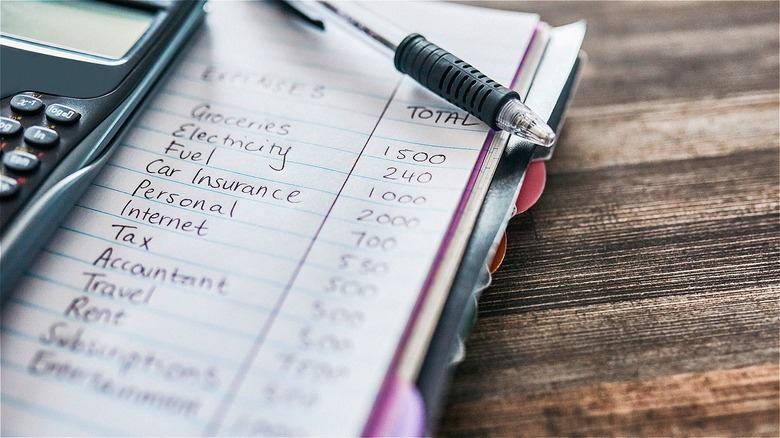What Is A Budget?
A budget is simply a spending plan. It takes into account how much money you have for a period of time (e.g., the next month) and then allocates that money for specific expenses and purposes, such as funding an emergency fund or paying groceries, bills, and housing. With a budget, you can see where your money is going — in a week, a month, or a year — and from there, see where adjustments can be made. How can your money be put to best use? That's what a budget can help you determine.
Further, budgets aren't set in stone. Your budget will change over time, as your expenses may vary and your financial goals are met. That emergency fund? Once you've funded it to cover three to six months' worth of expenses, you can then find another purpose for the money you had previously set aside. As you can see, having a budget gives you control over your money, helping you not only to save but also avoid common financial mistakes, such as overspending and falling into a debt cycle.
How a budget helps you save
If you've been wondering where your money's been going every month, creating a budget can help bring a lot of clarity. A budget will help you see where every income dollar goes and, in turn, help you identify where you can save. For example, if you've been using credit cards toward the end of each month to make it to the next, then there's likely something in your current spending that can be adjusted so you won't have to turn to plastic and add to what you already owe. It's definitely different seeing your accumulated spending in a budget versus spending the money in smaller increments in real time. For instance, if you've been buying a $6 latte every day, Monday through Friday, seeing that you're spending $120 on coffee may make you reassess your java routine.
What's more, because you'll be allocating funds through a budget, you can also eventually earmark money for savings goals — both short- and long-term. Once you build that expense into your budget, it'll help you stay consistent in putting money toward your goal(s). For example, if you want to save $600 for holiday spending, you know you'll need to build a $50 expense into your monthly budget to reach your target by December. The same goes for long-term savings goals, such as saving for your annual IRA contribution or a down payment on a house.
Creating a budget
To begin, gather all your spending information. How much of your income currently goes toward housing, transportation, groceries, and utilities? Also, list your spending for phone/internet service, insurance, and debt repayment each month, plus discretionary spending, like dining out, shopping, and entertainment. When creating a personal budget, list everything you currently spend money on each month, along with an estimate of how much you spend on each. You can do this by hand but adding the data to a spreadsheet can be handy for quick calculations.
As noted, seeing how your money is being spent in numbers can be eye-opening. From a budget breakdown, you can immediately see where you're possibly overspending or not being as careful as you would like. When you build your budget, start by allocating your income to all of the essential categories first, then see what's left over. From this amount, you can decide how it could be best spent, like putting it toward a sinking fund for a specific financial goal or future expense.
Note that financial experts say it's important to include a line in your budget for fun money, too — such as for travel, dining out, a subscription service, or that latte you've made part of your mornings. Being able to spend part of your income on these small motivating rewards can actually help you stick to your budget. In fact, the 50/30/20 rule designates 30% of a person's income after taxes for "wants." While not everyone can afford to allocate 30% for discretionary spending, that's the thing: Personal budgets can be constantly adjusted to what works best for you and your financial goals.


